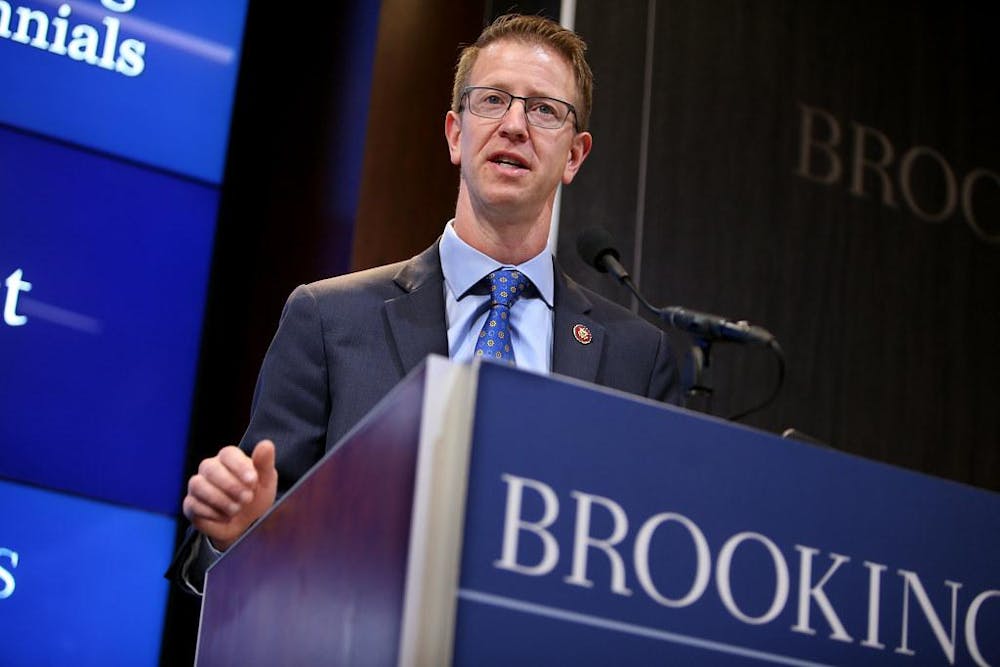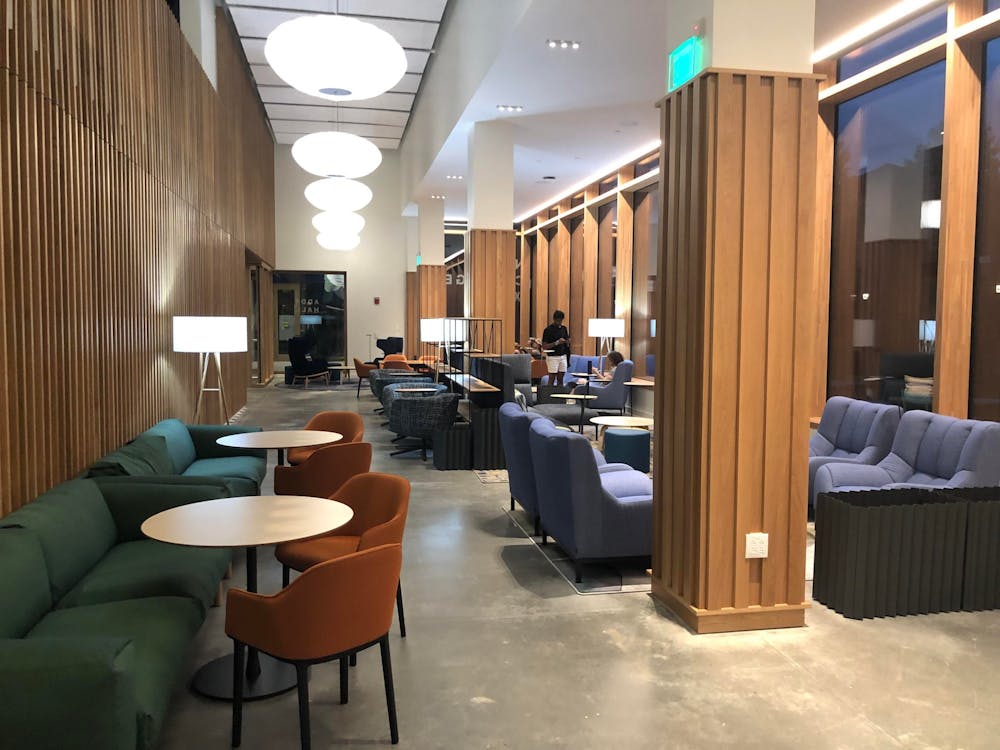There was a Congressman sitting in the SPIA dining room on Monday. He was not there for a conference or a lecture series, however. He was there for office hours.
Congressman Derek Kilmer (D-WA) ’96, now in his second year at Princeton, teaches a School of Public and International Affairs (SPIA) Junior Task Force, “Fixing the People’s House: Policy Reforms to Restore the U.S. House.”
“I think institutional stewardship is really important,” Kilmer said in an interview with The Daily Princetonian. “One of the things that drove me to teach this class was I think there are a lot of people who are interested in how to make Congress work better. And if you deputize a bunch of smart Princetonians to think about the problem, one, they can come up with really interesting solutions. And two, there’s an appetite and an audience for that by members of Congress.”
Kilmer sat down with the ‘Prince’ in the Robertson dining room after his office hours to talk about his class and his time in Congress, which is coming to an end after a dozen years in D.C. and another eight in Washington’s state legislature.
“20 years of public service felt about right,” Kilmer told the ‘Prince’ when asked about why he chose to retire from Congress. “There are people leaving Congress saying ‘to heck with this place.’ I’m not one of them. I actually have liked the work.”
Of the seven Congressmen who are Princeton alumni, Kilmer is one of four who is stepping down at the end of this term. Reps. Sarbanes, Buck, and Gallager have all also announced that they are leaving Congress after the 2024 election.
Kilmer said that some of his work is a direct result from his time at Princeton as an undergraduate.
“My senior thesis looked at challenges facing timber communities in Washington state like the one I grew up in,” Kilmer said. “Two years ago, I actually turned some of that research and some work other people have done in that space into legislation called the RECOMPETE Act.”

The RECOMPETE Act eventually passed in August 2022 as part of the Chips and Science Act. The Economic Development Administration recently chose 22 regions around the country to receive assistance from the federal government under the program — including northwestern Washington, where Kilmer grew up and now represents.
“Which feels really good, right? That’s literally coming from Princeton from a little logging town, having the work I did at Princeton form some of the legislation I’ve introduced. And I’ve seen it come full circle to help my community. That’s kind of neat.”
Kilmer’s work in Congress has also focused on making the legislative branch run better, which he says is part of the reason he ran, and why he’s teaching his class at Princeton.
“I ran because I had kids and because [Congress] was a fixer upper,” Kilmer told the ‘Prince.’ “I actually wanted to see a better future for them. But that really shaped the things I worked on in Congress, including working a lot on congressional reform. Because if we’re going to do this job, I want to make sure I’m leaving the institution better off.”

Some of the actions he recommended on the House Select Committee on the Modernization of Congress — which he Chaired for four years — include implementing a bipartisan orientation (rather than the current process, which is split by party) and a newly-opened bipartisan co-working space. The subcommittee has accomplished about a third of their goals and is working towards implementing another third, and Kilmer says that his students’ JPs “have gotten some traction in DC.”
Kilmer is stepping away during a time of national political disagreement and discourse, from Congress to college campuses. Last week, Kilmer was set to give a speech at the University of Puget Sound about the divisions in the country when it was interrupted by pro-Palestine protesters.
“We’ve got some work to do to figure out how to disagree better. And the slight irony that a speech about how we disagree better was interrupted by disagreement… like, okay,” Kilmer sighed. “But my sense is, each of us has to figure out how to walk into discussions with the recognition that we might be wrong and the other person may be right. And we have to be active and empathetic listeners and be poised for discussion, not just debate. Generally, college campuses are a really good place for that to happen.”
Still, Kilmer is leaving Congress with hope.
“I couldn’t be in this job if I weren’t a genetically hopeful person,” he told the ‘Prince.’ “My hope stems from the notion that we have agency. It’s not the pollyannaish view, ‘it’s all going to be fine, stay calm.’ It’s the notion that things get better because we work to make them better.”
Kilmer said the next “chapter” of his life is uncertain – he’s not even sure if he’ll teach at Princeton again next year — but he says he hopes to continue the progress he made in Congress in whatever he does next.
Charlie Roth is a senior News writer for the ‘Prince.’
Please send corrections to corrections[at]dailyprincetonian.com.








